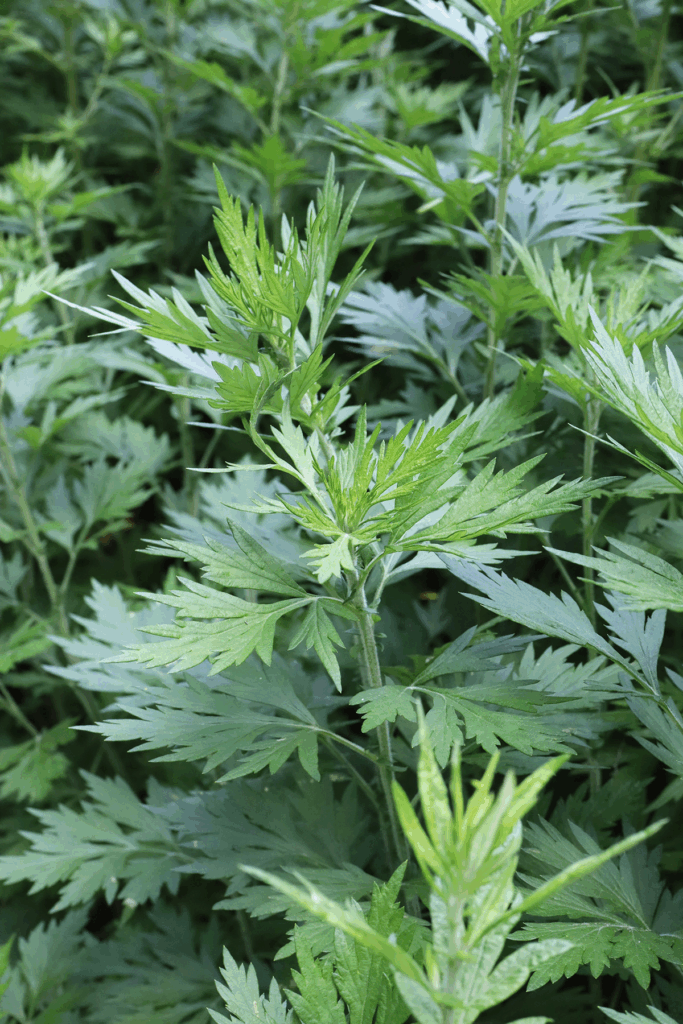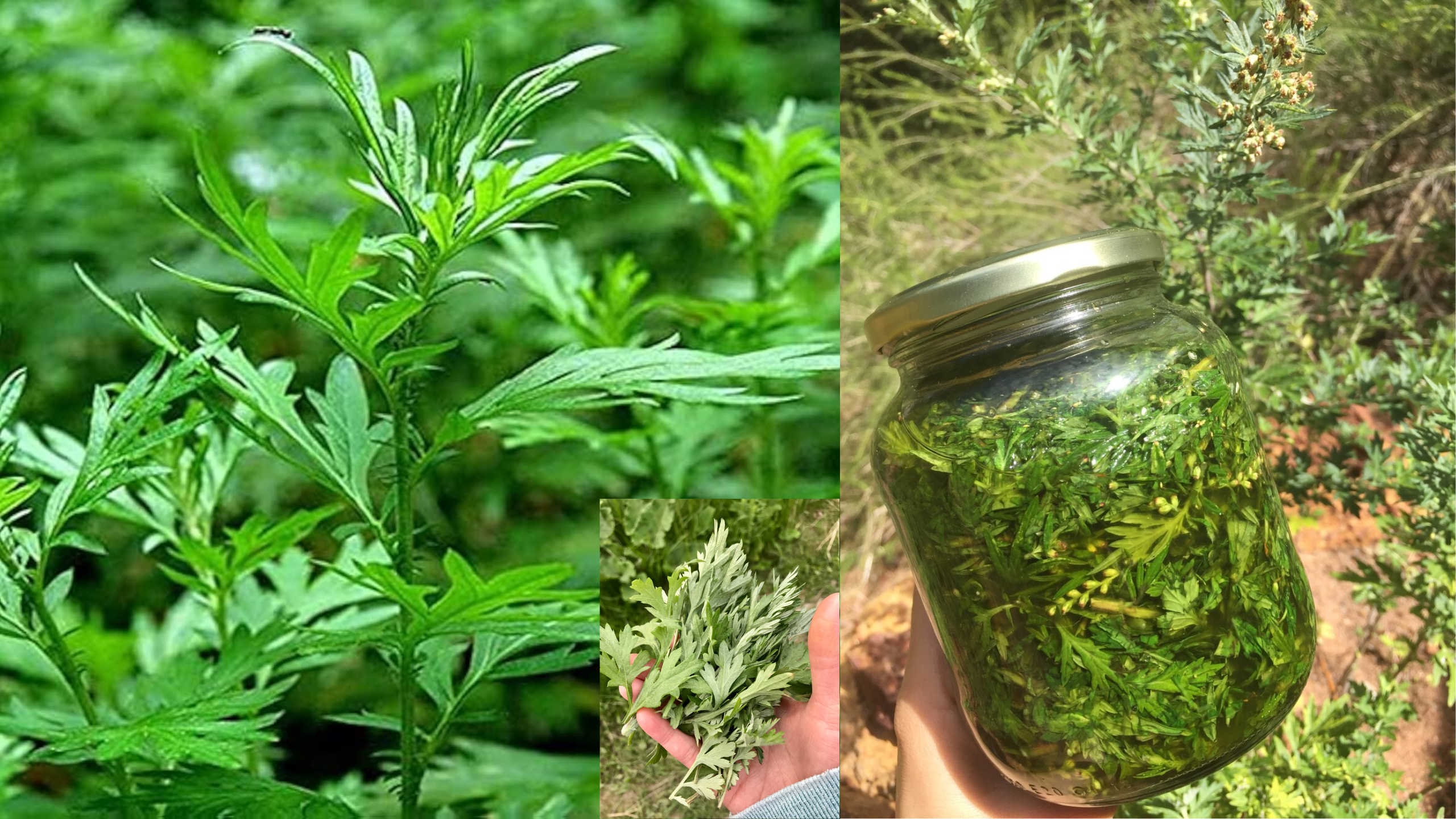Mugwort (Artemisia vulgaris) is an ancient herb that has captivated cultures worldwide for centuries. Known for its aromatic scent and multifaceted applications, this hardy perennial plant boasts a rich history in medicine, culinary arts, and spiritual practices. Native to Europe, Asia, and North America, mugwort’s versatility continues to make it a beloved plant for gardeners, herbalists, and wellness enthusiasts alike. Let’s explore its many benefits, properties, and how you can incorporate mugwort into your daily life.
Why Is Mugwort So Special?
Mugwort isn’t just a pretty plant; it’s a powerhouse of health benefits and cultural significance. From supporting digestion to enhancing relaxation and even spiritual practices, mugwort’s uses are wide-ranging.
The Top Health Benefits of Mugwort
1. Supports Digestive Health
Many traditional cultures have used mugwort to soothe digestive issues. It stimulates the production of bile and gastric juices, which helps break down food more effectively. If you frequently experience indigestion, bloating, or stomach cramps, a cup of mugwort tea might provide relief. It also has mild laxative properties, promoting regularity without harsh effects.
2. Regulates Menstrual Cycles
Mugwort has earned its reputation as a women’s herbal ally. Its emmenagogue properties—that is, its ability to stimulate menstrual flow—can help regulate irregular periods and reduce premenstrual symptoms like cramps and mood swings. However, women who are pregnant should avoid mugwort, as it can induce uterine contractions.
3. Promotes Better Sleep and Relaxation
Feeling anxious or having trouble sleeping? Mugwort’s mild sedative qualities make it a popular natural remedy for calming the mind. Many people burn mugwort incense or use essential oil to create a peaceful atmosphere that encourages restful sleep and eases stress.
4. Fights Infections with Anti-inflammatory and Antimicrobial Effects
Thanks to compounds like flavonoids and terpenoids, mugwort exhibits anti-inflammatory and antimicrobial qualities. It’s commonly used topically—such as in poultices or ointments—to soothe minor skin irritations, wounds, and infections.
5. Boosts Mental Clarity and Calm

Ancient herbal traditions suggest mugwort can elevate mental focus and clarity. It’s often used to reduce stress and promote a sense of calm, making it a wonderful herb for mental wellness.
6. Traditional Parasite Control
Historically, mugwort has been used as a natural way to expel intestinal parasites. While scientific research continues to explore this benefit, traditional medicine has long viewed mugwort as a valuable deworming herb.
Key Properties of Mugwort
- Rich in Antioxidants: Mugwort contains flavonoids and coumarins, which help neutralize free radicals, potentially reducing the risk of chronic illnesses.
- Essential Oils: The plant’s essential oils—including cineole and camphor—not only give mugwort its distinctive aroma but also provide therapeutic benefits used in aromatherapy and topical treatments.
- Emmenagogue Effects: This makes mugwort effective in stimulating menstrual flow and alleviating menstrual discomfort.
- Nervine Qualities: Mugwort supports nervous system health, helping to calm nervous tension and promote relaxation.
How Can You Use Mugwort?
Traditional Medicine
- Tea: Steeping dried mugwort leaves in hot water produces a soothing herbal tea, ideal for digestion, menstrual support, or stress relief.
- Tinctures and Capsules: Concentrated extracts allow for targeted dosing—perfect for those seeking specific health benefits.
- Poultices and Ointments: Applying mugwort topically can ease skin conditions, minor wounds, or inflammation.
Aromatherapy and Smudging
- Mugwort essential oil is popular in diffusers for calming the mind and enhancing mental clarity.
- Burning mugwort or using it in smudging rituals can cleanse spaces, ward off negative energy, and invite protection.
Culinary Uses
In some cultures, mugwort adds flavor to dishes like soups, rice cakes, and stews. Its slightly bitter, aromatic taste can deepen culinary creations and connect you to traditional cooking practices.
Dream Enhancement and Spiritual Practices
Mugwort has a mystical reputation for improving dreams and aiding lucid dreaming. People often place dried mugwort under their pillows or burn it as incense to promote vivid, memorable dreams.
Spiritual and Protective Uses
Across many traditions, mugwort is considered a protective herb. It’s used in rituals and carried as an amulet to ward off negative influences and purify spaces.
Important Precautions and Considerations
While mugwort offers numerous advantages, responsible use is essential.
- Allergic Reactions: If you have allergies to plants like ragweed, daisies, or marigolds, you may also react to mugwort.
- Pregnancy and Breastfeeding: Due to its uterine-stimulating properties, pregnant women should avoid mugwort unless advised by a healthcare professional.
- Overuse Risks: Excessive consumption can lead to side effects such as nausea, vomiting, or liver toxicity.
- Consult Your Doctor: Always check with a healthcare provider before adding mugwort to your health routine, especially if you have existing health concerns or are taking medications.
Final Thoughts: An Ancient Herb for Modern Life
Mugwort’s legacy as a medicinal, culinary, and spiritual herb is truly remarkable. Its ability to support digestion, regulate menstrual cycles, promote relaxation, and even inspire vivid dreams makes it a versatile addition to your herbal toolkit.
Whether you enjoy sipping mugwort tea, diffuse its essential oils, or use it in spiritual rituals, this herb offers a connection to centuries of traditional wisdom. As with all herbal remedies, intrinsic caution and knowledge are key—so embrace mugwort thoughtfully and consult healthcare professionals when necessary.
This resilient plant continues to thrive in gardens and homes, carrying with it centuries of healing and mysticism. Explore its properties and discover how mugwort can enrich your life—body, mind, and spirit.
If you’re interested in learning more about herbal gardening, health remedies, or sustainable cultivation, feel free to ask! Gardening can be a rewarding way to bring nature’s gifts directly into your everyday routine.


Wir verwenden auf unseren Seiten Affiliate-Links und
erhalten möglicherweise eine Provision für Kunden, die an Online Casinos verwiesen werden. Casino.guru
sieht sich als eine unabhängige Informationsplattform über Online Casinos und
Online Casinospiele, die von keinem Glücksspielanbieter oder irgendeiner anderen Instanz kontrolliert wird.
Teilen Sie Ihre Meinung mit oder erhalten Sie Antworten auf Ihre
Fragen. Die Situation konnte schließlich geklärt werden, nachdem der Spieler alle
ausstehenden Beträge, einschließlich einer
letzten Zahlung von 150 €, auf seinem
Konto erhalten hatte. Ein Spieler aus Belgien konnte seine Gewinne in Höhe von 261 USDT aufgrund eines laufenden KYC-Verfahrens nicht abheben, obwohl er zuvor bereits erfolgreich Auszahlungen ohne KYC-Prüfung erhalten hatte.
Der Spieler hat die Möglichkeit, die Beschwerde zu einem späteren Zeitpunkt
erneut einzureichen, um weitere Unterstützung zu erhalten.
So lässt sich die riesige Spielauswahl schnell und einfach durchstöbern. Wenn Sie bereit sind, hohe Beträge einzuzahlen, bietet dieses Willkommenspaket auch eine spezielle High-Roller-Option. Die Spielauswahl, die Ein- und Auszahlungsmethoden sowie der Kundenservice über den Live-Chat sind in beiden Versionen vollständig nutzbar.
Eine klassische App zum Herunterladen gibt es nicht, dafür
bietet das Immerion Casino eine browserbasierte Web-App, die auf allen mobilen Endgeräten läuft.
References:
https://online-spielhallen.de/kingmaker-casino-cashback-ihr-weg-zu-mehr-spielguthaben/
There is also a TAB Mega Wall, a dedicated Keno Lounge and more than 500 state-of-the-art gaming machines.
There are also 128 deluxe rooms available at the luxury 5 star Pullman Reef Hotel Casino
as part of the onsite experience. To keep informed about forthcoming specials, sign-up for the casino newsletter.
The Reef Rewards program members also have access to unique bargains and member-only
offerings such as giveaways, free parking, lodging, and savings.
You may use your Reef Rewards card to gain points whenever you spend money in the casino, which can be used for cashback and other prizes.
Members get access to an exclusive bar and eating
area with complimentary beverages and food.
The Pullman Reef Hotel Casino ensures guest safety with advanced security measures, including high-definition CCTV
cameras and on-site trained security personnel.
For up-to-date withdrawal data, ask the casino support or visit their website.
Discover Pullman Reef Hotel Casino in Australia, a top location for world-class gambling, luxury
accommodations, great dining, and exciting entertainment.
References:
https://blackcoin.co/bellagio-resort-overview/
The Ville Resort Casino offers an extensive range of gaming options
that cater to both casual players and seasoned gamblers.
Sign up for news, offers, and invitations to the
things we love to share and enjoy So not only are there tons of things to
do outside the Casino however you can enjoy a wide range of entertainment
within the casino walls.
Islands, reefs, sundrenched beaches that go on forever.
The playful spirit of modern Australia comes
to life with world-class cuisine and entertainment in lush tropical surrounds at The Ville.
For those who want a residence, not just a hotel room, the spacious Corner Suites make for a luxurious retreat.
Check out our How to Play Guides if you want to know more about our games.
A truly unique experience for your next event. Professional
dealers and casino quality chips it’s just like the real thing without the risk!
Our fresh, seasonal buffet offering is recreated daily.
Locals breakfast offer not available on public and school holidays or in December.
References:
https://blackcoin.co/lasseters-hotel-casino-comprehensive-guide/
online casino roulette paypal
References:
logisticconsultant.net
us online casinos paypal
References:
http://play.kkk24.kr/bbs/board.php?bo_table=online&wr_id=275904